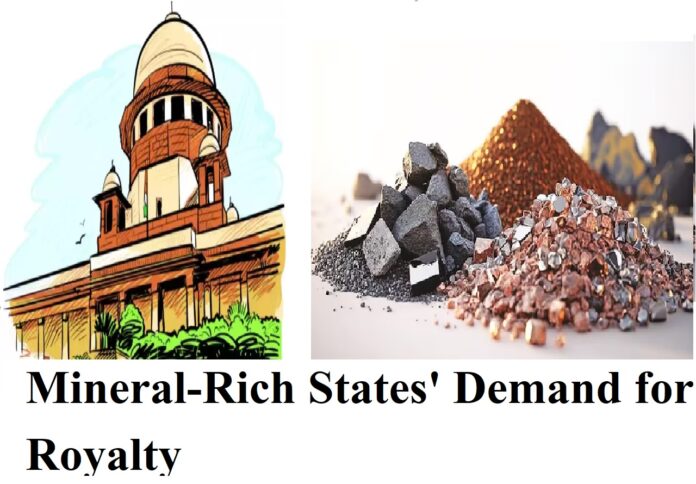(NTI): The central administration staunchly resisted a petition from the mineral-abundant states demanding reimbursement of the royalty imposed by it on mines and mineral-bearing territories since 1989 in the Supreme Court.
Solicitor General Tushar Mehta, representing the Centre, presented his arguments before a nine-judge panel led by Chief Justice of India (CJI) DY Chandrachud, asserting that the BJP-governed Madhya Pradesh and Rajasthan desired the verdict to be effective only in the future.
The central authority highlighted that any directive requiring it to pay the purported dues retroactively would have a “multipolar” effect. Mehta contended that implementing the judgment retrospectively would affect numerous industries, including the PSUs, and emphasized that it would unleash a deluge of fresh litigations.
Underscoring the necessity for equitable justice for all parties involved, he proposed that the court might consider stating that neither the state governments should demand any levy retroactively nor should private entities or PSUs that have paid seek any reimbursement of the funds.
The nine-judge bench, comprising justices Hrishikesh Roy, Abhay S Oka, JB Pardiwala, Manoj Misra, BV Nagarathna, Ujjal Bhuyan, Satish Chandra Sharma, and Augustine George Masih, reserved its decision on whether the royalty imposed by the Centre on mines and mineral-bearing lands since 1989 should be refunded to the states.
During the proceedings, senior advocate Rakesh Dwivedi, representing the Jharkhand Mineral Development Authority, advocated for making the judgment retrospective. Addressing the financial ramifications if the judgment were applied retrospectively, Dwivedi suggested that past arrears could be settled in instalments.
Senior advocate Vijay Hansaria, representing Uttar Pradesh, argued that the high court had upheld the state levy and now the apex court has also affirmed it, noting that all companies except two have been complying with the state government’s tax.
Senior advocate Harish Salve, representing Mahanadi Coalfields, contended that the historical levy demands would surpass the net worth of numerous companies, and applying the judgment retrospectively would drive companies into insolvency.
On July 25, a nine-judge bench in the Supreme Court, by majority, determined that states possess legislative authority to impose taxes on minerals and mineral-bearing lands. This judgment provided a significant revenue enhancement for mineral-rich states.
Multiple companies engaged in mining activities support the Centre’s stance on the refund of royalty to mineral-bearing states. On July 25, the bench led by CJI DY Chandrachud declared that royalty is not a tax. “Royalty is a contractual consideration paid by the mining lessee to the lessor for the enjoyment of mineral rights. The obligation to pay royalty arises from the contractual conditions of the mining lease. Payments made to the government cannot be classified as a tax merely because the statute allows for their recovery as arrears,” stated the CJI. However, Justice BV Nagarathna dissented, asserting that the Centre possesses the authority to impose royalty.


